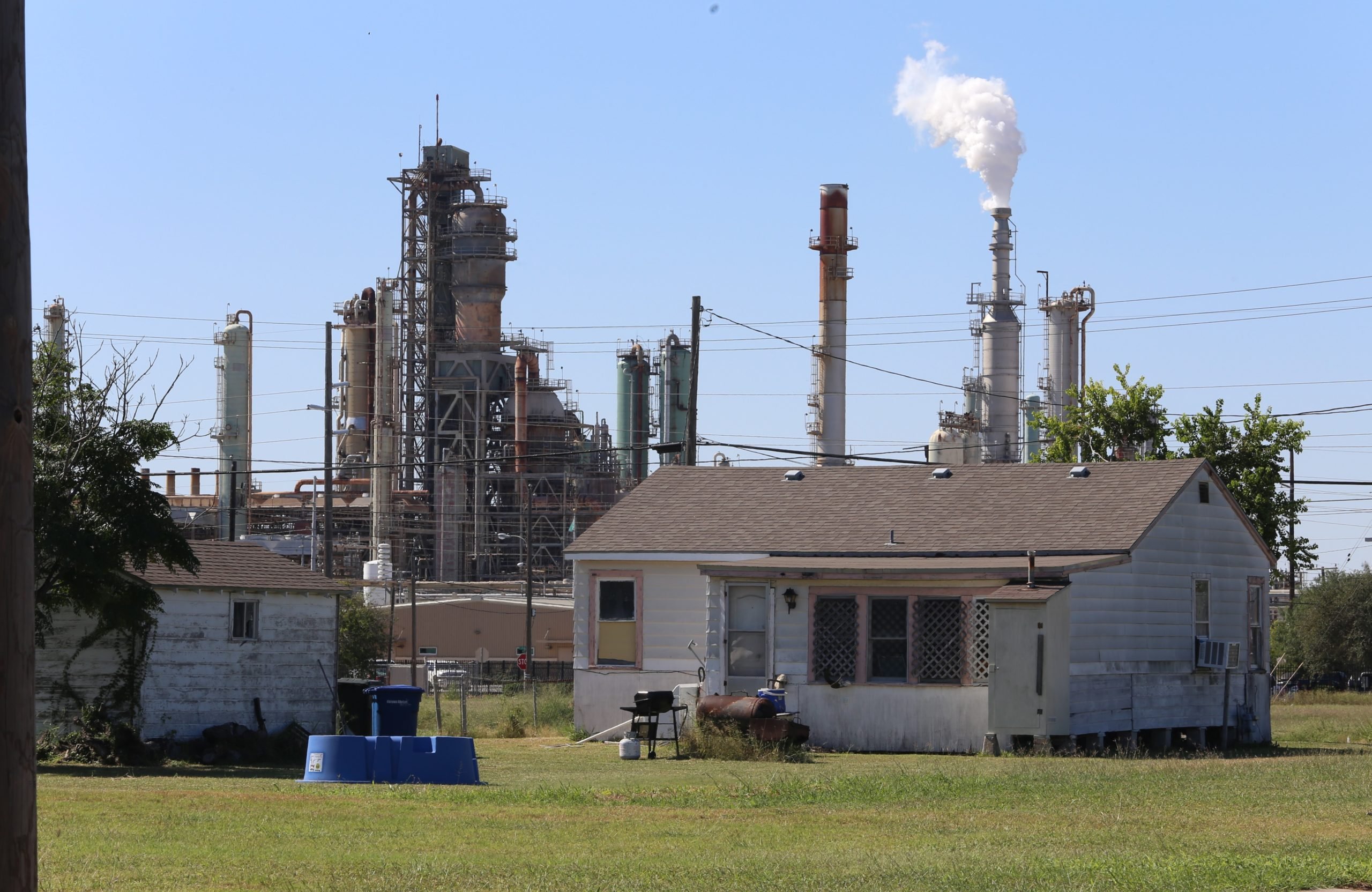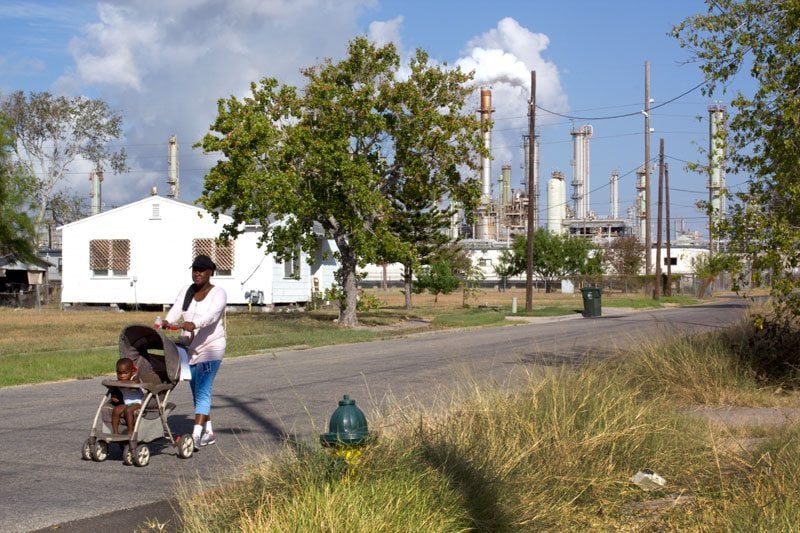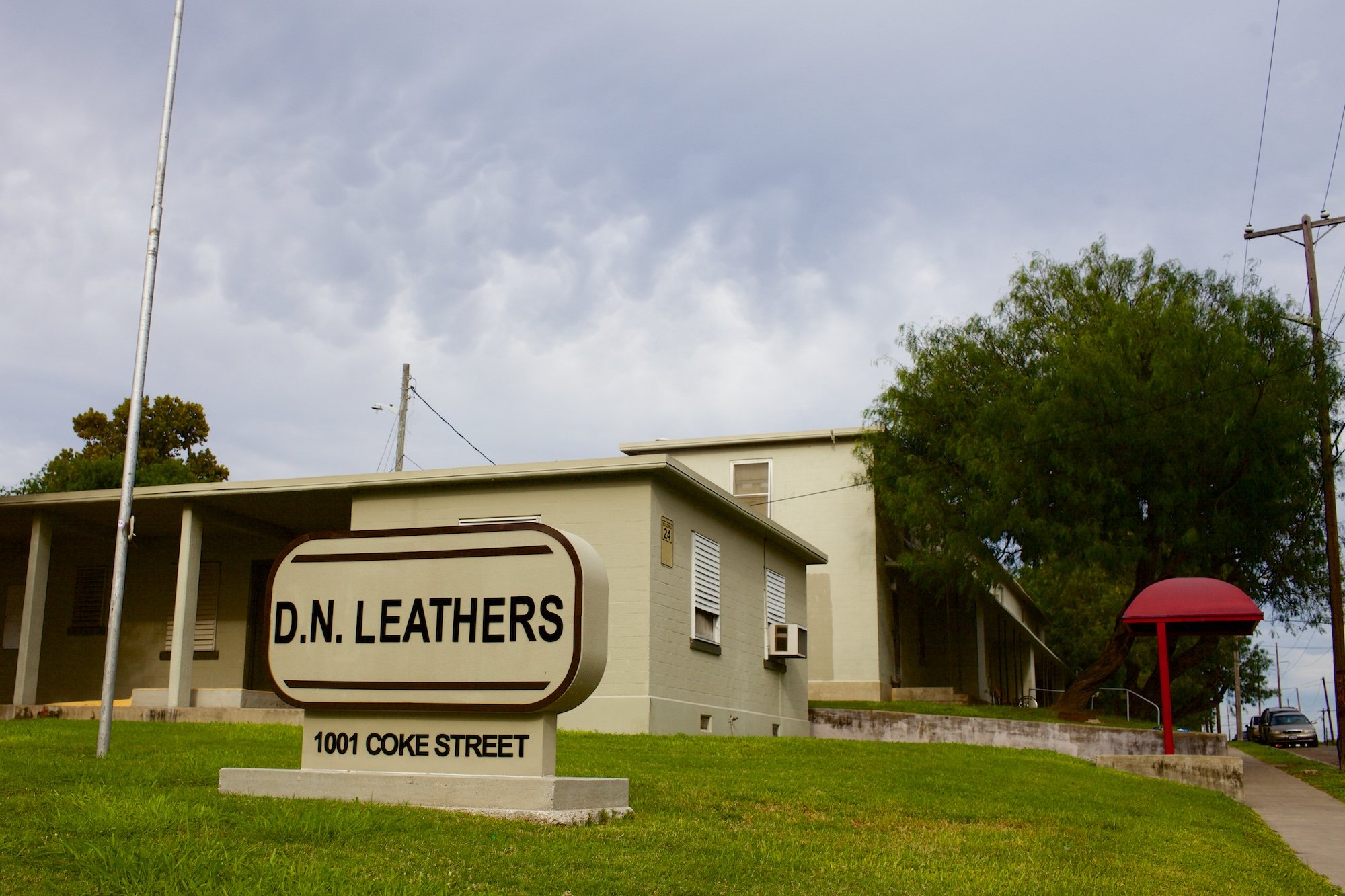
Victims Disappointed by Small Penalty in Citgo Criminal Case

Seven years after Citgo was convicted of environmental crimes in Corpus Christi, a federal judge has finally sentenced the company—at least partially. U.S. District Court Judge John D. Rainey fined the multi-national oil company a little more than $2 million Wednesday for violating the Clean Air Act at its Corpus Christi refinery. Prosecutors had argued the company should pay up to $2 billion.
In a blow to the residents who live near the Citgo refinery, the judge failed to put Citgo on any sort of probation and delayed setting restitution for the residents. The victims, who attribute a spectrum of health problems to exposure to the plant’s toxic emissions, are upset at the glacial pace of the case and a fine they consider a pittance for Citgo’s crimes.
“That is a punishment that does not fit the crime,” says Melissa Jarrell, a professor of criminal justice at Texas A&M-Corpus Christi. “What message does it send when a multibillion-dollar corporation receives a $2 million fine?”
In 2007, Citgo was found guilty of illegally operating two uncovered tanks containing oil and toxic chemicals like benzene for nearly 10 years at its refinery in Corpus Christi. On Wednesday, about 80 men and women from the Hillcrest and Oak Park neighborhoods near the plant—most of them minorities and many of them elderly—stood in the courtroom to await the sentence. Many of them had been awarded protection under the Crime Victims’ Rights Act and were allowed to testify when the sentencing hearing began in October. The Citgo case marks the first time victims of an air pollution crime have received this designation and been allowed to share testimony in court, a precedent that could have broader implications for future victims of air pollution.
Despite this status, the victims may not receive compensation from Citgo. Jarrell has been following the case and attended the hearing with the residents yesterday. She says the judge said the victims might misconstrue what he had to say, so he would instead deliver his decision on restitution by written order within the next 90 days.
“What can I interpret from the fact that he doesn’t want to appear in court and talk to people?” she says. “It’s probably not very good information because with a written order he never has to talk directly to victims themselves.”
Confused by the judge’s decision to delay ruling on restitution, frustrated victims directed their questions to the prosecution. After waiting seven years to find out if they would receive any restitution that might help them with hospital bills or relocation, the residents didn’t understand why they now have to wait up to three more months to get an answer.
When the sentence was delivered, Citgo said it planned to appeal, which means it will likely be even longer before residents see compensation, assuming the judge orders Citgo to provide any.
“Even though we believe Judge Rainey was fair in this sentencing process, CITGO intends to appeal because the prosecution unfairly characterized the two water equalization tanks as oil-water separators,” Citgo said in a written statement.
Citgo has been arguing that the tanks don’t fit the regulatory definition of “oil-water separators,” since the U.S. government first indicted it in 2006. But a jury found the company guilty in 2007 nonetheless.
The Department of Justice had originally sought a much higher penalty for Citgo’s environmental violations—up to $2 billion. The prosecution based that figure on the $1 billion it estimated that the company had made from operating the refinery during the time it was breaking the law.
But in 2012, the judge agreed to capping Citgo’s financial penalty to the statutory maximum of $500,000 per felony count. That amounted to just $2 million, plus $15,000 for each misdemeanor count of violating the Migratory Bird Treaty Act after dead migratory ducks were found in the tanks, penalties that totaled $45,000.
There have been other major air pollution problems at the Citgo plant in Corpus since the company’s conviction, including an accidental release of at least 4,000 pounds of the highly corrosive and poisonous hydrofluoric acid in 2009. The company only notified a few residents of the release, and initially only reported a 30-pound leak. Residents complained of nausea, dizziness, burning throats and other problems at the time of the leak.
“These aren’t victimless crimes,” Jarrell says. “Citgo would like to paint a picture of a friendly neighbor in Corpus that provides jobs and donates to people in the community, which is true, but they were also poisoning people in the community for over 10 years and those people may not get anything.”


